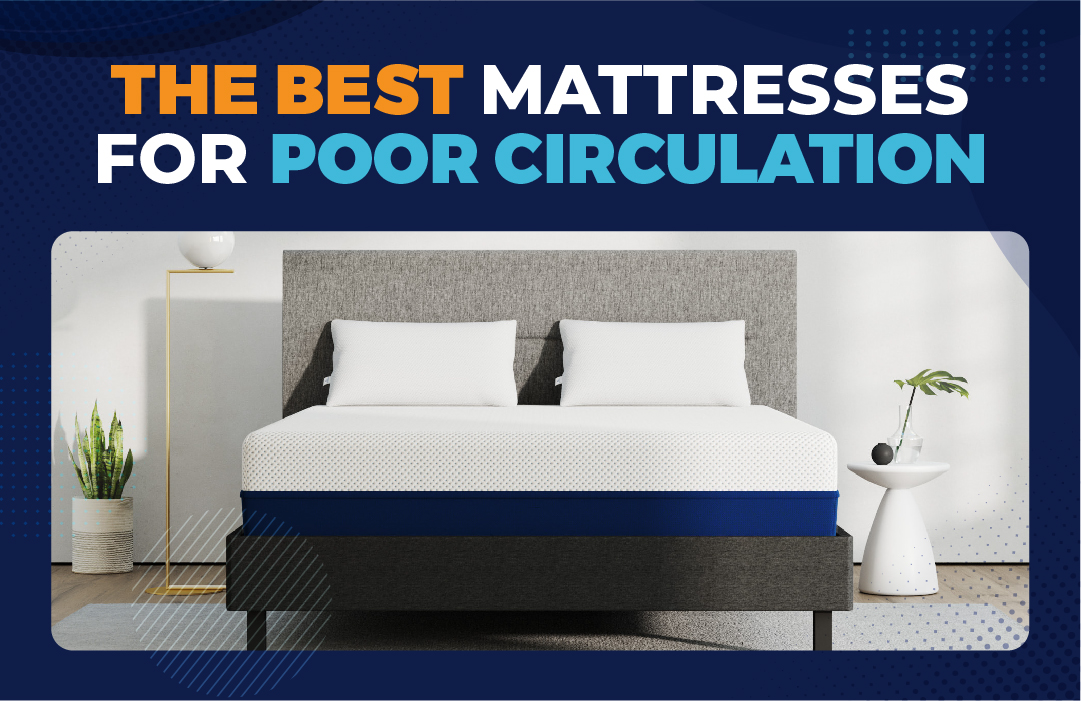Teens need 8 to 10 hours of sleep each night, according to The Sleep Foundation. Teens are known for sleeping for hours, sleeping in until noon, and struggling to wake up for school. There’s a good reason for a teen’s sleep schedule- mental and physical changes brought on by hormones as well as a shifting internal clock can cause sleep issues. Teens who experience poor sleep are proven to be less productive and have diminished academic performance.
Sleep is vital for everyone, especially teens. Here are a few tips to help teens with sleep to boost productivity.
For more tips, skip to the infographic below.
1. Go to bed at the same time each night

One of the best ways to stay on track with your sleep is to keep a schedule. Waking up at the same time every day helps you stay on track with both your sleep and productivity. Remember how hard it was to wake up early again after sleeping in all summer?
Adjusting your sleep/wake schedule allows you to wake up feeling rested and fall asleep when you’re tired. This can seem impossible at first. Regulating your circadian rhythm is the key to overall better sleep and productivity.
Take It To The Next Level: by using a light alarm or app. Dawn simulation lights will help you wake up easier by suppressing melatonin and signaling your brain to wake up. These are especially helpful if you have to wake up when it’s still dark.
2. Avoid sleeping in on weekends

This is a tough one for teens (and most adults). On weekends and during school holidays, sleeping in hours later than normal makes it even more difficult to adjust — and can lead to even more tiredness and grogginess once back on your normal schedule.
Catching up on sleep, or sleep debt, can impact your mood and metabolic health and is unlikely to help your body recover from lost sleep.
Take It To The Next Level: by tracking your mood when you sleep in or pay off sleep debt on the weekend. You can use a journal, journal app, or a mood tracking app to see how sleeping in, sleeping too much, or sleeping too little impacts your mood.
3. Don’t take on too much

Teens are, for the most part, social and participate in extracurricular activities like sports, part-time jobs, the arts, and clubs.
Not only can too many activities lead to decreased sleep due to time constraints, not sleeping enough or getting poor sleep is detrimental to student athletes. One study found a connection between decreased athletic performance and poor sleep in teen athletes.
Taking on too much and trying to fit in too many activities will lead to burnout that will eventually impact your health and sleep.
Take It To The Next Level: by focusing on activities that are the most important to you. Don’t try to be in every club or play every sport-it will eventually catch up to you and leave you feeling exhausted. Instead, focus on what you love or want to improve on the most.
4. Consider your internal clock

Studies have shown that teens have a different internal clock than both adults and younger children. As children grow into teens, their internal clock shifts.
According to Seattle Children’s Hospital, our internal clocks shift by about 2 hours during our teenage years. This means that a teen who used to fall asleep by 10 p.m. would now have to wait until midnight to fall asleep and won't naturally wake up for another two hours in the morning.
This is difficult when it comes to waking up for school and a big reason why over 76% of high school seniors report less than 8 hours of sleep. While it can be difficult or almost impossible to adjust your internal clock with early school start times, try your best to get as much sleep as you can.
Take It To The Next Level: by adjusting your sleep to accommodate your school/work/activities schedule. This will take some time to get used to, but changing up your bedtime will allow you to get the sleep you need.
5. Limit video games

One of the most popular forms of entertainment today, video games are a multi-billion dollar industry and show no sign of slowing down. With the average gamer logging over 8 hours of play time per week, this favorite pastime is a major sleep disruptor.
Like computers and phones, video games played on either devices or television emit blue light that simulates natural light that diminishes melatonin production. Video games are also a distraction from important school work and other obligations.
While video games are a way many teens and some adults use to relax, staying up late to beat that next level can end up costing you sleep. It’s best to avoid video games too close to bedtime.
Take It To The Next Level: by challenging yourself to a set amount of play time per day, only playing on weekends, or setting up a dedicated time to game after completing assignments and other tasks.
6. Plan meals accordingly

Teens are known for their voracious appetite, especially during a growth spurt. It might be tempting to finish off that bag of chips before bed or hit the drive-thru late at night, but this might lead to a poor night’s sleep, especially if you’re staying up too late. Eating too much too late can cause disrupted sleep and digestive issues.
On the other hand, going to bed hungry can cause you to wake up in the middle of the night and binge on easily accessible unhealthy foods. If you go to bed with your stomach growling, you’re more likely to make unhealthy food choices when you wake up, which can lead to weight gain and poor nutrition.
Take It To The Next Level: by eating a healthy snack a few hours before bed, if you are hungry again after dinner. According to a study by the Florida State University Nutrition Department, a snack consisting of protein and fiber before bed can improve energy levels and metabolism.
7. Keep naps short

Along with eating, teens are known for their ability to sleep for hours. While teens need more sleep than adults to help accommodate their rapidly growing body and minds, extra hours snoozing can be too much of a good thing. A nap can help a tired teen get the rest they need, napping for too long or too close to bedtime can have the opposite effect.
The UCLA Sleep Disorders Center recommends no more than an hour nap for teens to prevent trouble sleeping at night. According to Johns Hopkins pediatrician Michael Crocetti, M.D., M.P.H., tired teens can benefit from a 30-45 minute nap before dinner time.
Take It To The Next Level: by tracking your sleep with an app or smart watch to see if something is impacting your sleep at night and making you tired during the day. This will give you an idea of how you’re sleeping and what you can do to change things in order to improve your sleep.
8. Poor sleep = bad driving

Learning how to drive and getting a driver’s license is a milestone for every teen. Poor sleep can turn this rite of passage into an event with devastating consequences. All drivers know the dangers of driving while sleep deprived, and teens, who tend to not get enough sleep anyway, are extra susceptible to car accidents due to sleep deprivation.
A 2008 study found that teens who drive alone while drowsy are more likely to be in a motor vehicle crash. The United States Department of Transportation estimates that around 91,000 vehicle accidents are caused yearly by drowsy drivers.
Teens are driving drowsy on a daily basis, putting themselves and others at risk for an accident. Sometimes, there is no choice but to drive while drowsy. If you absolutely have to drive and are feeling sluggish and sleepy, open the windows, turn on some music, and have some caffeine to help keep you awake while driving.
Take It To The Next Level: by avoiding taking longer trips alone, if possible. Accidents are up to 82% more likely to occur when driving alone versus with a friend. If at all possible, avoid driving long distances by yourself. You'll have someone to talk to and you can take turns driving.
9. Pay attention to your emotional health

Emotional health is a vital component of our overall health and wellbeing. During our teenage years, mood swings due to hormonal changes can cause issues like depression and anxiety that can impact sleep. A 2015 study found that teenagers who experience sleep deprivation show decreased moods and reported feelings of depression, anger, confusion, and anxiety.
Take It To The Next Level: by tracking your moods and your sleep. If you, or your teen, have been irritable and experiencing signs of anxiety and depression, poor sleep might be to blame. Tracking both sleep and mood will help isolate events, feelings, and connections between mood and sleep. Once you have this information, you can make decisions about how to handle emotional health and improve your sleep hygiene.
10. Avoid peer pressure

Approval of peers and the pressure that comes with trying to fit in are important to teenagers who are learning who they are and how to communicate.
Peer pressure is often a powerful force in the lives of teens. All too often teens are influenced by poor behavior from their friends and peers that leads them to participate in inappropriate and sometimes illegal activities like consuming alcohol, drinking and driving, smoking tobacco, using drugs, etc..
Along with breaking the law, risking addiction, and numerous other problems, these behaviors are proven to affect sleep. One study found that teens with poor sleep are more likely to engage in risky behaviors along with their peers. Another study showed that teens who develop bad sleep habits as a result of risky behaviors are more likely to take these habits into adulthood, leading to a lifetime of health consequences.
Teens are not likely concerned with their future health, but considering these factors early is important to start good habits to carry into adulthood.
Take It To The Next Level: by avoiding situations and individuals who make you feel pressured into doing something you don’t want to. This might be difficult depending on your circumstances. However, it is best to put yourself and your health first.
11. No phones before bed

For both teens and adults, phones are our primary form of communication as well as endless sources of entertainment and distractions. Numerous studies and research have shown that exposure to blue light emitted from our phones and computers disrupts sleep cycles by minimizing melatonin.
One study found that 57% of teens who use technology before bed experience sleep problems. Researchers believe that teens and younger children are more vulnerable to the effects of blue light than adults, making a pre-bedtime scroll even more problematic.
Take It To The Next Level: by silencing phone notifications before bed. This will prevent any temptation to check your phone before bedtime. You can always turn notifications back on in the morning or set your phone to silence notifications at a certain time.
12. Utilize time management
With teens involved in school, extracurricular activities, work, and social and family obligations, it can be difficult to make time for everything that needs to be done-including sleep. Many teens feel pressured to be involved in numerous activities. Overscheduled teens are likely to experience depression and anxiety. Taking on too much can distract from more important tasks like schoolwork. Practice time management by making yourself a schedule each day to complete activities.
Take It To The Next Level: by eliminating or reducing hours spent at certain activities. This might be difficult at first, but in the long run it will be greatly beneficial to your overall performance in other areas and mental health.
How Much Sleep Do Teenagers Need

Poor sleep impacts teens as much as adults. Teens growing bodies and developing minds thrive with sleep. Teenagers who don't get enough sleep are more likely to develop obesity, diabetes, mental health conditions, and attention and behavioral issues. Sleep deprivation in teens is also connected to an increased risk of accidents.
The amount of sleep someone needs depends on age and possible health concerns. The chart below, provided by the CDC, shows their sleep time recommendations for teens.
|
Age Group
|
Recommended Hours of Sleep Per Day
|
|
6–12 years
|
9 to 12 hours per 24 hours
|
|
13–18 years
|
8 to 10 hours per 24 hours
|
Good sleep is one of the pillars of health for everyone. Lack of sleep and poor sleep is linked to numerous health conditions like diabetes, sleep apnea, heart disease, etc. Sleep deprivation in teens is linked to the inability to concentrate, increased risk of anxiety and depression, suicidal thoughts, drowsy driving accidents, and more. Developing good sleep habits when we’re young can ensure they will continue on during adulthood.
Looking for even more sleep tips? Visit our blog to learn more about mattress recommendations, sleep advice, health tips, and more! 

 Free delivery across US & Canada
Free delivery across US & Canada Best price guarantee
Best price guarantee Extended 120-day sleep trial
Extended 120-day sleep trial Free in-store mattress testing
Free in-store mattress testing![How Much Sleep Do Teens Need in 2025? [Complete Guide] How Much Sleep Do Teens Need in 2025? [Complete Guide]](https://www.sleepare.com/wp-content/uploads/2021/07/Sleep-Routines-for-Teens-1.jpg)















 Showrooms
Showrooms





Meet The Author:
Shanir Kol
Shanir Kol, founder and CEO of SleePare, pioneered the “Try and Buy” model in eCommerce, enhancing mattress shopping by combining in-store trials with online purchases. Launching in 1999, his company focuses on customer satisfaction and eco-friendly practices, aiming to minimize mattress waste and expand sustainably.